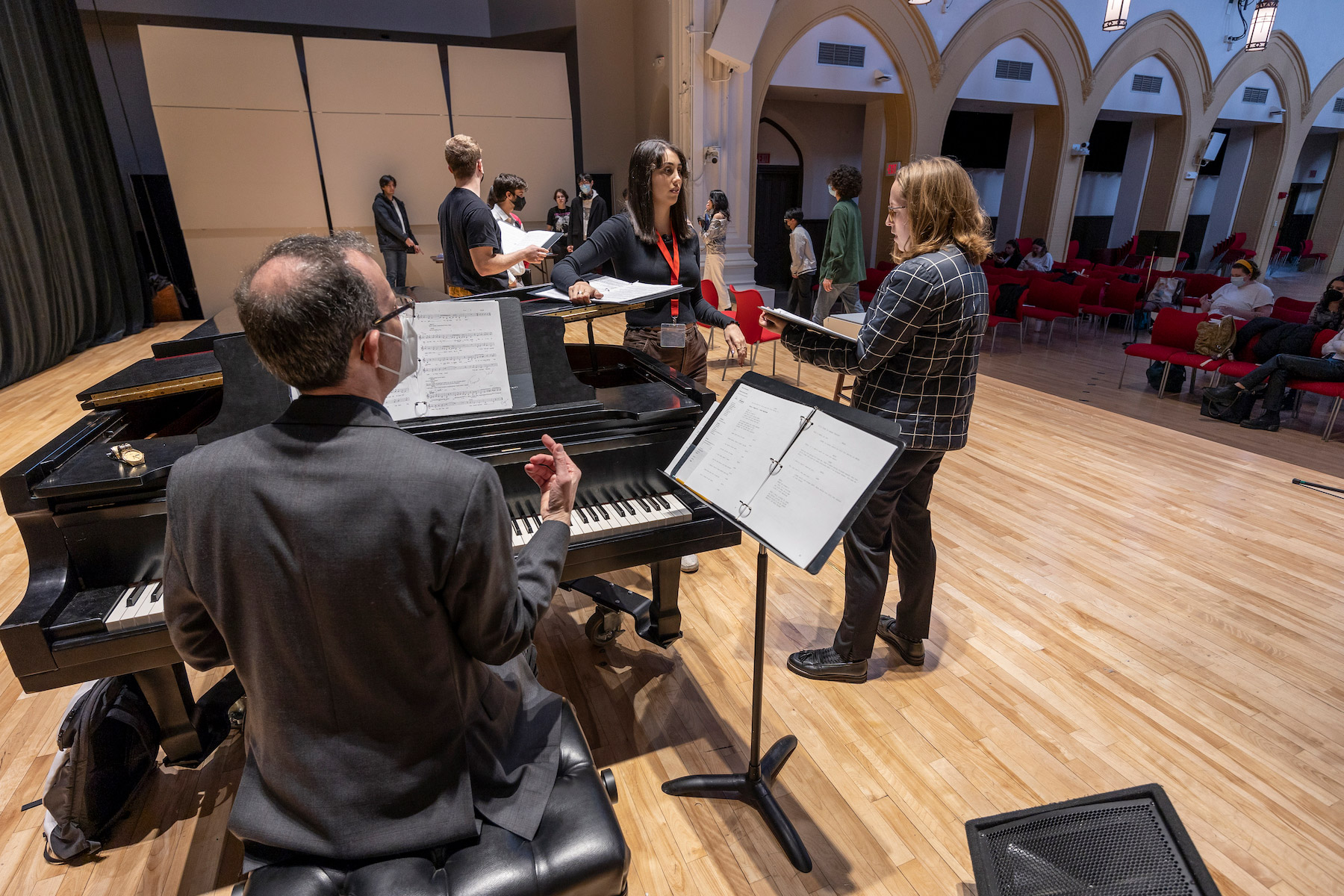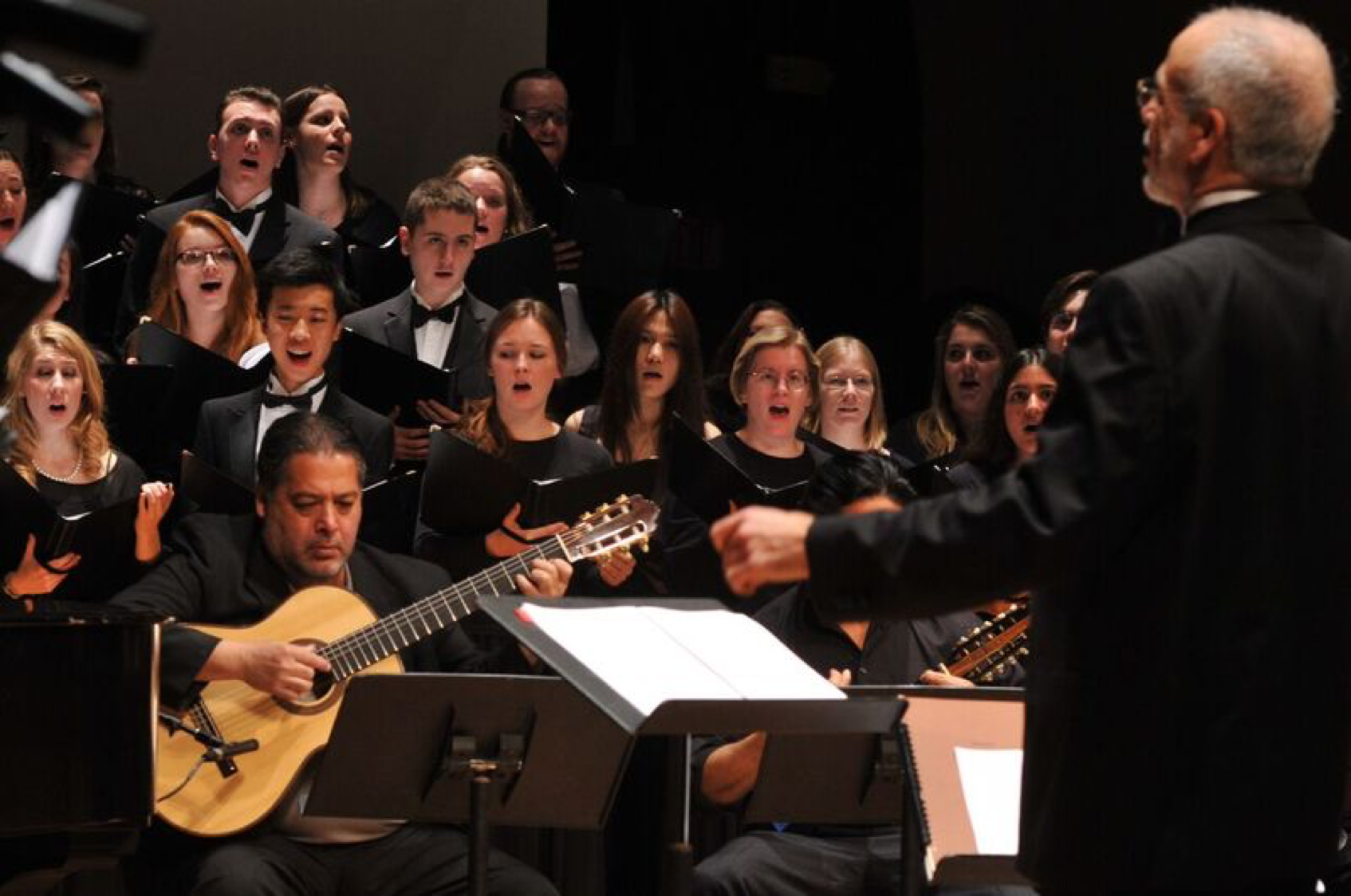Career Opportunities
- Advocacy
- Arts Administrator
- Culture Writer
- Editor
- Ethnomusicologist
- Music critic
- Music Theorist
- Musician
- Musicologist
Multidisciplinary Skills
- Research and analysis
- Critical reasoning
- Critical listening
- Persuasive writing
- Public speaking
- Creativity
- Improvisation
- Cross-cultural knowledge
Co-op Opportunities
- Boston Symphony Orchestra
- World Music/CRASHarts
- Rolling Stone
Share
The Bachelor of Arts in Music at Northeastern University engages students in the study of how music works and the many contexts in which it is created and received. The foundation of the major is a unique introductory course, “Music in Everyday Life” (MUSC 1001), which investigates many dimensions of the musical experience and music’s contributions to society.
Students encounter a wide range of musical repertoires, theoretical approaches, and research strategies in the BA program. Students take a variety of classes in history, theory, and ethnomusicology, and they may be active performers, participating in our many ensembles and taking private lessons. Students also participate in a wide array of co-ops and are encouraged to explore opportunities that conform to their interests.
The BA in Music offers a set of advising paths to help students tailor their course of study to their particular musical interests and goals. Students are not required to follow one advising path but are encouraged to explore them and consult relevant path advisors as they discover their passions and the field’s possibilities. Advising paths for Music BA students include: Popular Music Studies, Music Performance, Music Composition & Songwriting, Music History & Ethnomusicology, Music Theory (Analysis & Visualization), Music in the Community (Education, Activism, Outreach), Music & Health Research, and Music Humanics.
Learning Outcomes
- Musical aptitudes, including the abilities to identify, apply and work conceptually with musical elements in the context of multiple musical traditions, through both listening and creating music.
- Cultural knowledge, including the abilities to identify and describe musical styles, their aesthetic values, social contexts and functions, the lives and creative processes of musicians, and technological developments that have affected musical production in different historical periods and pards of the world.
- Interpretive and Analytical Skills, including the abilities to debate musical meaning, as well as what music is and does, in different historical periods and parts of the world, and to write about music in various genres (such as reviews, trade publications, scholarly publications).
- Research Skills, including abilities to assess the state of knowledge on a musical topic, identify unanswered or unsettled questions, and craft original, evidence-based arguments in oral and written form.
Program Outcomes
Students graduating with a B.A. in Music are expected to have acquired the following competencies:
Musical Aptitudes
- To identify and apply the fundamental principles behind the melodic, harmonic, rhythmic, and formal components of music from a variety of time periods and cultures.
- To hear, identify, and work conceptually with the elements of music, including intervals, scales, chords, meters, rhythm, melody, harmony, modulations, structure, and other elements.
- To understand the basic principles and structures of at least three or four other systems of musical performance, including improvisation from genres, cultures and ethnicities beyond the European/North American “classical” canon.
Cultural Knowledge and Analytical Skills
- To demonstrate a familiarity with the broad trajectory of music and its history up through the present day.
- To demonstrate an understanding of listening, aesthetic properties of style, and the ways these shape and are shaped by artistic and cultural forces.
- To identify and define musical, aesthetic, and cultural styles, the lives and processes of composers, the activities of performers and performance traditions, and the technological advances that have affected musical production from centuries past to the present in all parts of the world.
- To integrate a broad range of cross-disciplinary and cross-cultural knowledge into a comprehensive understanding of music, aesthetic properties of style, and the ways these shape and are shaped by artistic, cultural, societal and political forces in cultures around the globe.
- To demonstrate the ability to write fluently about music, its history, evolution, cultural meaning and social impact (These skills should be transferable such that students who concentrate in the BA in Music will be able to apply for a broad range of jobs once they graduate).
Research Skills
- The ability to think critically, write, and present musical analyses and research.The ability to present original research, both written and oral through developing a primary (& possibly secondary) area of interest.
Note: Following successful completion of the capstone class, students should have built a portfolio of projects and papers that will aid them in applying for jobs or graduate school.






